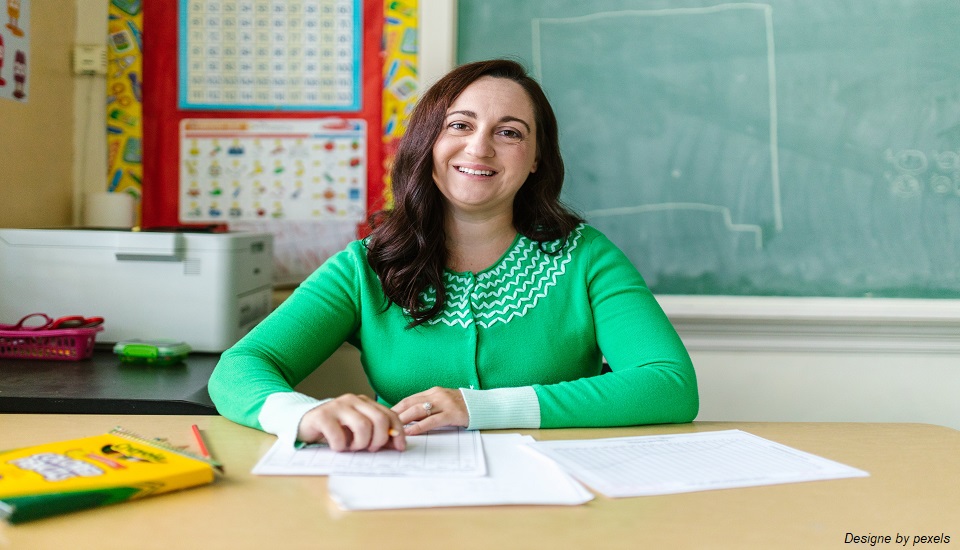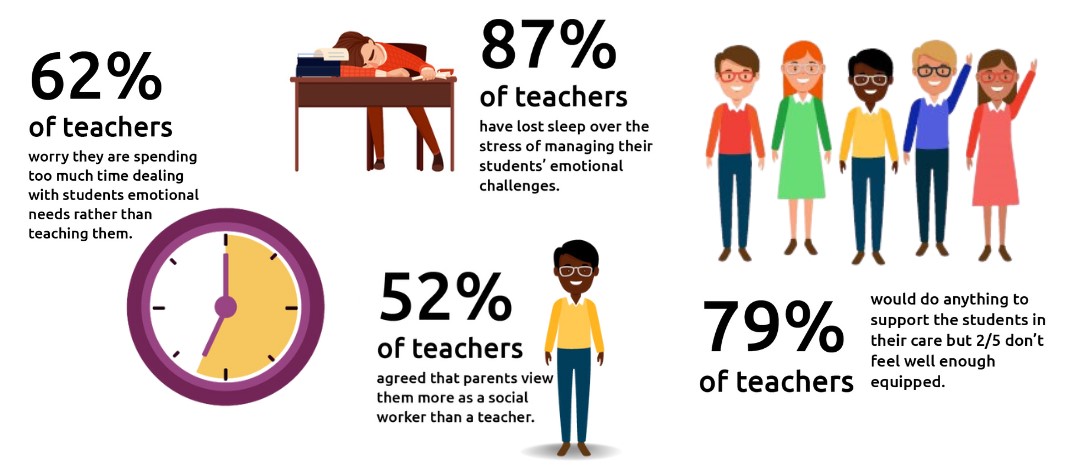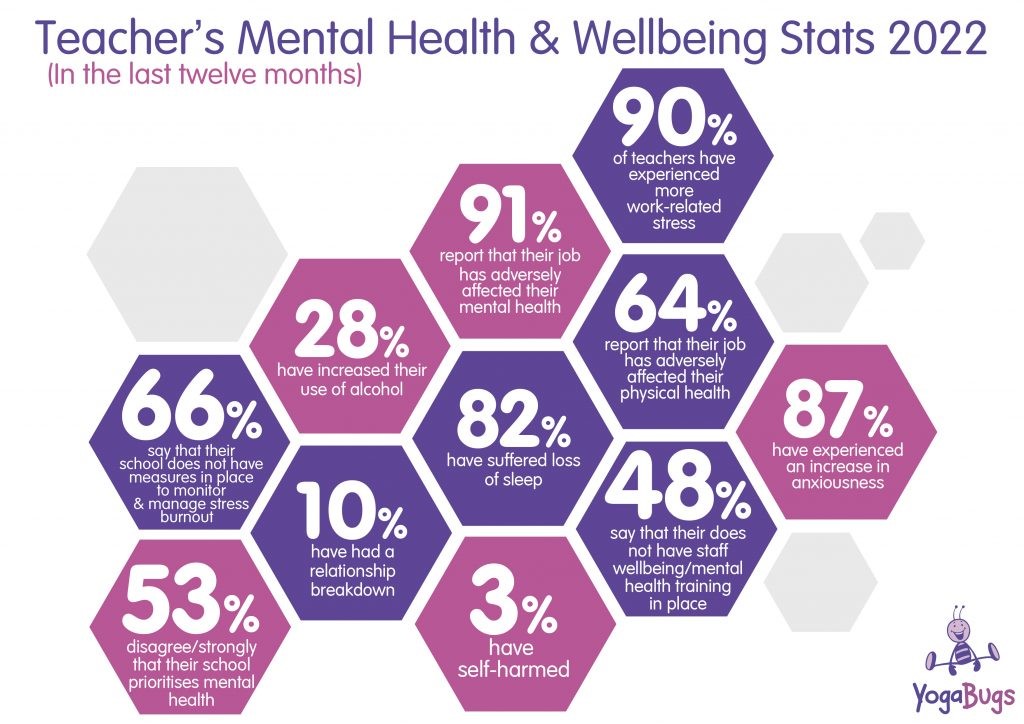Feeling Anxious in Classrooms? Here Are 7 Tips To Cope With Teaching Anxiety
8th November 2023

Anxiety is a common phenomenon that if overlooked can give rise to anxiety disorders. Teaching anxiety is completely normal, but what is not normal is living with it and doing nothing to cope with it. If you feeling anxious while taking classes, you should at least be able to identify the factors that can make it worse. This is because, if you don't identify your triggers, you can struggle to manage yourself and your classroom.

Anxiety attacks within a classroom can be unfortunate, but it is also possible to overcome. Stay tuned to find out more.
Helpful Ways To Deal With Teaching Anxiety
If you are trying to handle stress and anxiety while teaching, here are a few ways to cope better:
- Find What Works For You
If you want to handle teaching anxiety you need to develop strategies to reduce stress. Involve yourself in practice teaching sessions to feel more confident about your teaching ability. Have a backup lesson or contingency plan to be prepared during interruptions or random schedule changes.
Focus on self-care, writing down your thoughts, going for walks, adjusting your diet, and meditating. Figure out which of these strategies works for you to make you feel more confident and in control.
- Gain Control
Despite self-care and classroom management techniques, there might still be days when your anxiety can reach the sky and you feel like nothing is working. In such cases, try to calm down, relax a little, and focus on the positives.
You can also see a doctor or a counselor to take anxiety-reduction medications. Some institutions often have employee assistance programs that can offer counseling or referrals.
Hey, do you follow us on Social Media? We regularly share upgraded educational content, tips, feedback and more. Check us out by clicking the profiles here - Facebook / Twitter / LinkedIn / Pinterest / Instagram / YouTube
- Plan Ahead
As educators, you have to play a lot of roles throughout the day. Even a slight change in your schedule can mess up your entire momentum. This is why it is essential to plan and stay in control.
Use lesson plans and electronic calendars as your organization tools to keep track of all your tasks and prioritize them. Use personal notes to write down all your tasks and still leave room for impromptu questions and answers.
- Change Classroom Activities
Try to switch up your activities a little, if you feel the standard ones trigger your anxiety. If a big classroom gives you panic attacks, try switching to a smaller group. You can also record your lectures and have your students watch them and take notes at home.
In this way, you will not have to face the classroom. Furthermore, class time can be considered for homework and you can leverage your time through workshops or asking questions to individual students or groups.
- Keep A Healthy Lifestyle
Depending on the severity of your anxiety, you can find yourself in an anxiety attack in the middle of a school day. Even though it will not be a full-blown panic situation, you can have bad days now and then. In such cases, remember, it is just a bad day and not a bad life.

Source: yogabugs.com Regardless of the situation, be sure to keep a healthy lifestyle and take care of your mental health as well. Make sure you sleep well, have a balanced diet, and carry out physical exercises to live and feel healthy.
- Take Care Of Yourself
Your body is a delicate ecosystem and even the slightest disruptions to sleeping, eating, and exercise patterns can cause trouble. Research reveals that hygiene, good sleep, proper diet, and exercise are of vital importance and crucial to take care of when it comes to mental health.
As a teacher it can be a difficult and stressful job to do, however, try your best to take care of yourself and not stay up late unless it's an emergency.
- Use Your Sick Days When You Need To
Your physical health is as important as your mental health. If you are sick or mentally exhausted and feel like you need a sick leave, take it. You shouldn’t feel bad or apologize for doing so as not every day will be a good day or a happy day and it is only human to fall sick.
If you are not in good health both physically and mentally, you cannot give your best to your students.
Handle Anxiety With Grace
Anxiety can happen anytime and the first and most important thing is to recognize that you are going through a phase. Identify your triggers and practice mindfulness to take care of your health. If you feel like you are lacking professional development and that is giving you anxiety, try to undergo a Bachelor of Education in Pre and Primary Education to know the specific needs of the students and be aware of what to expect. By being familiar with the situation, your anxiety can be definitely manageable.
We believe education should be accessible for everyone. That’s why we don’t charge for our blogs. Find the right course that will help you in your career with us, contact us at - 1800-212-6400. You can mail us at act@asiancollegeofteachers.com
Written By: Sonal Agrawal